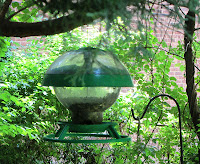Kenneth Branagh’s
1993 film of Much Ado About Nothing had one of the wittiest title shots I
can recall. I burst out laughing in the
theatre when I first saw it, and it still tickles me. It’s over the top, as is much of the
film. I like Branagh. I love Joss
Whedon. I like Kenneth Branagh’s
work as an actor better than that of Alexis
Denisoff. And yet, watching
Branagh’s delightful Much Ado, his
Benedick seemed to be overdoing it a bit — downright broad for film. This did not diminish my enjoyment of that Much Ado then or now. Set in a vivid and hot Italian landscape in
another century, Branagh’s film was more. exuberant than Whedon’s modern version,
which setting required something resembling realism.
Joss Whedon said in an interview that he felt some of the
choices made by characters in Shakespeare’s
Much
Ado About Nothing had to have been made under the influence, which
makes sense. Perhaps therefore everyone
in this film is drinking excessively. While
Kenneth Branagh’s production of Much Ado
was lush, in Joss Whedon’s film everyone is
a lush.
The innocence of a period film’s ingénue and juvenile (Hero
and Claudio) cannot be captured in a film set in the 21st century. That presents a problem, yet not as great a
one as the fact of Don Pedro and his followers.
They wear no uniforms, yet they carry guns. They are not soldiers. In what wars do civilians in well-cut suits
carry guns? Drug wars? In the 21st century, must give one
pause to wonder if Don Pedro’s a drug lord.
And his brother Don John tried to strike out on his own. What was “this ended action” (I.i) about? The scene in which Benedick challenges Claudio
is extremely well acted by Don Pedro (Reed
Diamond), Claudio (Fran Kranz),
and Benedick (Denisoff), but that he was carrying a gun made Benedick a troublesome
personage. It tends to make him look
like a hood. Don Pedro and Benedick and
Leonato and Claudio don’t seem like they’d be involved in the illicit drug
trade. This problem and that of
Claudio’s churlish behavior at an American 21st century wedding are slight distractions from the
pleasures of the film.
 |
| Amy Acker as Beatrice and Jillian Morgese as Hero. (c) 2012 Elsa Guillet-Chapuis & Roadside Attractions |
Alexis Denisoff
surprised me with his adept use of Shakespeare’s language in a modern
setting. The chemistry between Denisoff
and Amy Acker has been well
documented in their years together on Whedon’s television series, Angel. I never had doubts about Acker — I had
complete faith she was great casting as Beatrice, and the pairing did not
disappoint. Ms. Acker’s Beatrice is
highly intelligent, her wit sharp, her heart aching. The pair was funny and believable whether
fighting or loving.
Reed Diamond is
excellent: straightforward and real as Don Pedro whether serious or comic. I’ve always liked his work, but this side of
him surprised me, quite pleasurably. Fran Kranz is sweetly hilarious as the
foolish Claudio. The party scene in
which Claudio rises from the pool in a snorkeling mask (see poster) only to be
misguided by the heads above water belonging to Don John, Borachio and Conrade
was incredibly funny and quite possibly the best I’ve seen that scene done.
Sean Maher, whom
I would not have envisioned as Don John, was a fine, understated villain and I
quite liked his performance. Clark Gregg was a goodhearted Leonato, struggling with what seems to be
(but regrettably probably is not) an outdated character and trying to bring him
likeably into the present.
I’ve been a fan of Nathan
Fillion since Firefly, and am delighted that he took on Dogberry for this
film. He plays the famously mangled
lines absolutely straight, so the humor really works. Dogberry’s ego shines through, and just
little touches make the “low” humor parts of the story truly funny. Clearly, physical comedy need not be violent.
Jillian Morgese
was practically a real live girl as the ingénue Hero, filling the blanks of
that thankless role with a level of self-confidence in addition to obedience.
 |
| Beatrice eavesdrops.... |
Dull as dishwater, however, was Spencer Treat Clark as Borachio until the moment he heard Hero was
dead, which brought to him a spark of life.
Tom Lenk as Verges was dull
and obviously acting. Romy Rosemont as the Sexton brought
some gravitas to the legal proceedings but, more, made us believe she had a
life waiting for her when those danged fools stopped talking.
Elsa Guillet-Chapuis
as the Photographer was focused and intent on her work, a naturally unnatural
part of the proceedings.
The costume party scene is a sultry modern gas; the world of
excess that is in this 21st century Much Ado seems so much more vulgar than the aristocratic excesses
of the past.
I keep comparing these two very different films of the same Shakespeare
play, but they’re both wonderful and exciting in their very different ways. Joss Whedon’s film is in a lower key than Kenneth
Branagh’s, as it must be since it is set in the present and in a small,
intimate, black-and-white film. (I love
black and white. It seems some how more
real to me than color.) And Whedon’s
addition of a silent prologue providing us a glimpse into the back-story of a
modern Benedick and Beatrice’s relationship was priceless.
While the 21st century works just fine for
Shakespearean tragedy, somehow this romantic comedy that is the beginning and
model for all romantic comedies just didn’t quite work in our time. Joss Whedon’s Much Ado About Nothing is
a film I’ve been looking forward to for years, and while I enjoyed it, I did
not walk out of the theatre whistling, or floating on air. I never thought I’d say this about a Whedon
Shakespeare film, but although I liked it, I did not love it.
~ Molly
Matera, recommending the film, while accepting the disappointment of reality.




























